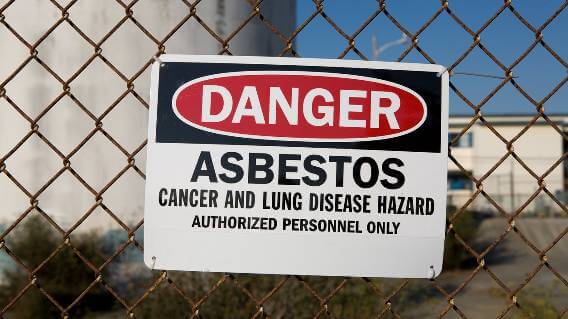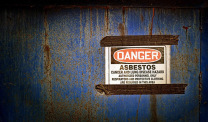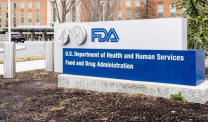Congress Resumes Asbestos Ban Efforts After ProPublica Report
Asbestos Exposure & BansWritten by Tim Povtak | Edited By Walter Pacheco

U.S. lawmakers and public health advocates have renewed their call for Congress to pass a long-awaited legislative ban of asbestos, sparked by the most recent news detailing the damage still being done by the toxic mineral.
ProPublica, a nonprofit online news organization, chronicled the health effects stemming from an upstate New York industrial manufacturing plant and a nearby chloralkali industry plant that they say carelessly handled large amounts of toxic asbestos material.
Both plants have closed, but the aftereffects remain.
“American workers are dying from asbestos. It is way past time to end its use,” U.S. Sen. Jeff Merkley of Oregon said. “This report confirms our worst fears. Workers dealing with asbestos are often left vulnerable to this deadly, dangerous substance.”
Merkley and U.S. Rep. Suzanne Bonamici, also of Oregon, are co-sponsoring the Alan Reinstein Ban Asbestos Now Act of 2022, which would ban any importation or use of asbestos. It is the most comprehensive asbestos ban legislation to come before Congress in more than 30 years. All previous legislative attempts have failed to advance.
Ban Asbestos Now Act Gains Co-Sponsors
This latest bill was filed in May and had one Senate committee hearing in June before it was shelved. Since the publication of ProPublica’s article in October, three more members of Congress have signed on as co-sponsors. They are U.S. Representatives Chellie Pingree of Maine, Adriano Espaillat of New York and Eleanor Holmes Norton of the District of Columbia. Proponents of the ban are hopeful it will be addressed in the next legislative session.
After the report last month, the Asbestos Disease Awareness Organization – America’s most aggressive, independent asbestos awareness organization – sent letters to every member of Congress highlighting the ProPublica findings and calling for their support of a ban.
Exposure to asbestos, which is highly regulated but still being used today, can cause a variety of serious health issues, including asbestosis, lung cancer and malignant mesothelioma.
Linda Reinstein is co-founder, president and CEO of ADAO. The legislation is named after her husband, who died in 2006 from mesothelioma cancer that was caused by asbestos exposure.
Over the years, Reinstein has enlisted public health officials, oncologists, surgeons, advocates and attorneys to urge Congress to enact a ban. Never has she been closer to succeeding than today.
“Asbestos puts workers, their families and the surrounding communities at risk for deadly disease and death from exposure, which is sickeningly frequent and widespread and without consequences for the companies that allow it to continue,” Reinstein said.
Past Asbestos Exposure Sickened Workers
Both chloralkali plants in upstate New York were run by OxyChem Corp., an energy/chemicals producer with a worldwide platform. Its plant in North Tonawanda, New York, which was closed 25 years ago, produced industrial plastics with the use of asbestos.
According to the report, the plant released excessive amounts of asbestos fibers into the air and surrounding neighborhoods, leading to health problems for a number of people.
Almost a dozen different lawsuits were filed alleging that the toxic asbestos from many years before had led to cases of mesothelioma, lung cancer and other health issues. Many of those cases have been settled. At least two of the lawsuits are still pending.
One woman died after years of washing her husband’s uniform, which was consistently covered with asbestos fibers, according to a lawsuit. Another man who lived near the plant was diagnosed with pleural effusions, which is fluid lining the lungs, after inhaling the fibers.
Many of the lawsuits accused OxyChem of failing to protect its workers inside the plant, and neighbors outside.
Report Says Asbestos Safety Standards Lacking
OxyChem also operated a chloralkali plant in nearby Niagara Falls, New York, where essential chlorine was produced. Asbestos was used extensively there also, to manufacture semipermeable fireproof diaphragms that separated chlorine from sodium hydroxide.
According to the ProPublica report, safety standards were routinely disregarded, resulting in health problems and deaths. The plant closed in 2021.
An estimated one-third of chlorine produced in the U.S. today comes from eight remaining plants spread across the country that are still using asbestos diaphragms. Others are using newer technology that doesn’t require asbestos.
The mining of asbestos, a naturally occurring mineral, stopped in the U.S. 20 years ago. Importation also dropped dramatically in that period.
In 2021, an estimated 320 tons of raw asbestos was imported and all of it went to the chloralkali industry, according to the United States Geological Survey. Small amounts of asbestos products also were imported, including roofing materials, automobile clutches and brakes, and oilfield brake blocks.
EPA Close to Recommending Asbestos Ban
While the push for a legislative ban of asbestos continues, the U.S. Environmental Protection Agency is moving in a similar direction.
As part of the broader Toxic Substances Control Act, the EPA in 2020 released Part 1 of its Final Risk Evaluation for Asbestos. It found 16 conditions of use that presented unreasonable risks to human health through occupational asbestos exposure or consumer uses.
One of those conditions was the processing and industrial use of asbestos diaphragms in the chloralkali industry.
The EPA is expected to finalize Part 2 of the evaluation by the end of 2023 before announcing its version of an asbestos ban.
Advocates like Reinstein and politicians such as Merkley and Bonamici believe legislation will be more effective, more complete, and less likely to be overturned in court than what the EPA will do eventually.
“What this story highlights is that the only way to ensure the safety of workers, their families and the general public is an outright ban of asbestos,” said thoracic surgeon and mesothelioma specialist Dr. Andrea Wolf of Mount Sinai Hospital in New York City. “These stories are terrifying, but must draw attention and support for the Alan Reinstein Ban Asbestos Now Act.”






